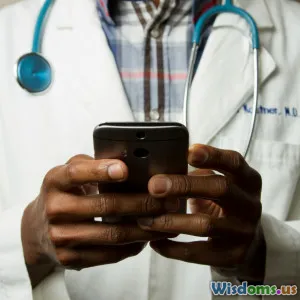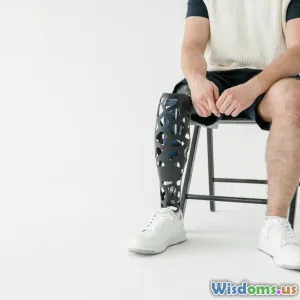
Revolutionizing Healthcare with Technology
5 min read Explore how technology is transforming healthcare, enhancing patient care, and improving outcomes through innovative solutions. (0 Reviews)
Revolutionizing Healthcare with Technology
The landscape of healthcare is undergoing a profound transformation thanks to advancements in science and technology. From telemedicine to artificial intelligence, the integration of innovative solutions is not only enhancing patient care but also redefining the overall healthcare experience. This article delves into the key technologies reshaping the healthcare industry and their implications for patients and providers alike.
1. Telemedicine: Expanding Access to Care
Telemedicine has emerged as a game-changer, particularly highlighted by its rapid adoption during the COVID-19 pandemic. By allowing patients to consult healthcare professionals via video calls or mobile apps, telemedicine breaks down geographical barriers and increases access to care for individuals in remote or underserved areas.
Benefits of Telemedicine
- Convenience: Patients can consult with doctors from the comfort of their homes, saving time and travel costs.
- Access to Specialists: Telemedicine allows patients to connect with specialists who may not be available in their local area.
- Continuity of Care: Follow-up appointments and ongoing treatment plans are easier to manage through virtual visits.
2. Artificial Intelligence in Diagnostics
Artificial Intelligence (AI) is profoundly impacting diagnostics, enabling healthcare providers to make faster and more accurate diagnoses. AI algorithms can analyze medical images, lab results, and even patient histories to identify diseases at earlier stages. For instance, AI tools are now being used to detect conditions like cancer from imaging scans with remarkable accuracy.
How AI is Enhancing Diagnostics
- Speed and Efficiency: AI can process vast amounts of data quickly, reducing the time it takes for physicians to receive test results.
- Improved Accuracy: Machine learning models are trained on extensive datasets, leading to more precise diagnoses and treatment recommendations.
- Predictive Analytics: AI can help in predicting disease outbreaks or identifying patients at high risk for certain conditions based on their health data.
3. Wearable Technology: Monitoring Health in Real-Time
Wearable devices like smartwatches and fitness trackers are gaining popularity, providing users with real-time health data. These devices track various metrics such as heart rate, activity levels, and even sleep patterns, empowering individuals to take charge of their health.
Impact of Wearables on Healthcare
- Preventive Care: Continuous monitoring can lead to early detection of health issues, encouraging proactive healthcare measures.
- Patient Engagement: Wearable technology promotes a greater awareness of personal health, motivating individuals to maintain healthier lifestyles.
- Data Collection: The data gathered from wearables can provide healthcare providers with valuable insights into a patient’s health over time, enhancing personalized treatment plans.
4. Electronic Health Records (EHR) and Interoperability
The digitization of health records through EHR systems has revolutionized how patient information is stored and shared. EHRs facilitate better communication among healthcare providers and streamline administrative processes.
Advantages of EHR Systems
- Streamlined Workflow: EHRs reduce paperwork and improve efficiency in clinical settings.
- Enhanced Patient Safety: With instant access to patient histories, providers can make informed decisions, reducing the risk of errors.
- Data Sharing: EHR interoperability allows for better coordination of care, as different healthcare providers can access the same patient information.
Conclusion
Technology is undeniably revolutionizing healthcare, creating a more accessible and efficient system for delivering care. As innovations continue to evolve, patients can expect enhanced experiences, improved outcomes, and a greater emphasis on preventative care. The future of healthcare is bright, driven by the power of technology to transform lives.
By embracing these technological advancements, both healthcare providers and patients can work together towards a healthier future.
Rate the Post
User Reviews
Popular Posts




















